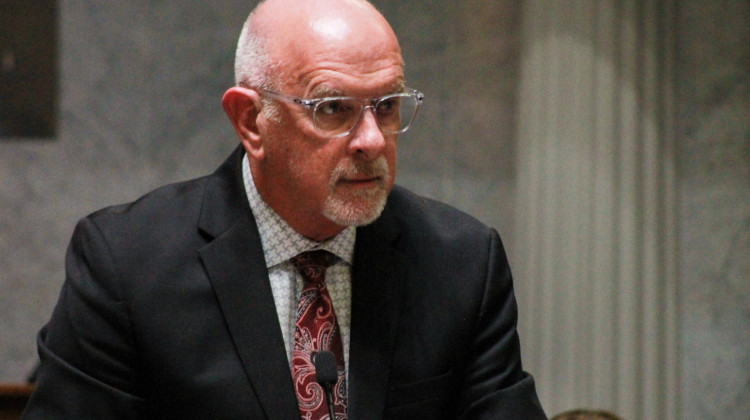
Maritza Lopez, president of the East Chicago Calumet Coalition Community Advisory Group, at the EPA hearing for Zone 1 on Nov. 29.
Rebecca Thiele/IPB NewsEast Chicago residents say a public meeting on the USS Lead Superfund cleanup last week left questions unanswered and several people didn’t get a chance to speak. They want more chances for people to give feedback.
It was a full house at the Environmental Protection Agency’s hearing on the plan for Zone 1 – the area where the West Calumet Housing Complex once stood. Residents had a lot of questions and concerns about the EPA’s contingency — which would allow for a residential cleanup or a less stringent commercial/industrial cleanup.
But less than two hours later, the library closed and everyone had to leave. Maritza Lopez is president of the East Chicago Calumet Coalition Community Advisory Group.
“All the questions need to be addressed by EPA before any decisions are being made and so the comments get submitted. That is key,” she says.
The CAG wants the agency to schedule another meeting before the Jan. 14 deadline for public comment or extend that deadline. The EPA says its considering it.
The EPA is also required to provide reasonable opportunity for oral comments as well as written.
In general, a site is cleaned up using one plan. And the EPA says if the site is cleaned to a residential standard, then it can be used for either homes or for industrial or commercial buildings.
READ MORE: East Chicago Residents, Mayor At Odds Over Superfund Cleanup Plan
But the EPA has set up the contingency to remediate to residential or industrial/commercial standards. When asked why, the agency didn't answer the question directly. Chizewer says she thinks it's a matter of cost.
"It costs more to clean to residential," she says. "And I think it’s important to consider whose money we’re saving."
By law, the responsible parties are supposed to foot most of the bill.
Indiana Environmental reporting is supported by the Environmental Resilience Institute, an Indiana University Grand Challenge project developing Indiana-specific projections and informed responses to problems of environmental change.
 DONATE
DONATE







 Support WFYI. We can't do it without you.
Support WFYI. We can't do it without you.